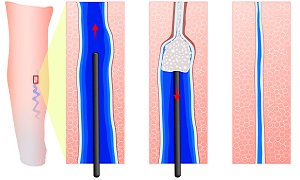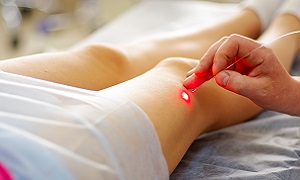Best Varicose Veins Surgery Doctors in India
Best Varicose Veins Surgery Hospitals in India
Hospital Highlights:
- Apollo Hospitals is a private healthcare group in India, with its headquarters based in Chennai. Established in 1983 by Dr. Prathap C. Reddy, the group offers a wide range of medical treatments and services across various specialties.
- It is renowned for emphasizing innovation and utilizing cutting-edge medical technologies into patient treatment.
- Known as India’s first corporate hospital, Apollo Hospitals is often credited for pioneering the private healthcare revolution in the country.
- With clinics and hospitals located all throughout India, Apollo Hospitals is a nationwide healthcare organization. Its presence can also be found in foreign countries.
- Preventive health examinations, medical and surgical treatment, and diagnostic centres are just a few of the services that the Apollo group provides.
- The group has several centres of expertise, including Cardiac Sciences, Neurosciences, Orthopedics, Emergency Care, Cancer Care, and Organ Transplantation.
- City: Chennai, India
Hospital Highlights:
- RIMC is a multi-specialty hospital in a sprawling area of 36 acres located in Chromepet, Chennai, Tamil Nadu, India.
- The facility has 450 beds including 130 critical care beds, 9 operating rooms, modern reference laboratories and radiology services, and is conveniently located near road, rail and air transportation.
- RIMC is led and managed by world-renowned physicians committed to healthcare.
- RIMC offers the broadest range of clinical care, education, and research. The hospital offers state-of-the-art technology and modern treatment facilities designed to provide health care at an affordable cost.
- Rela Institute is driven by patient needs, comfort and confidence.
- City: New Delhi, India
Hospital Highlights:
- Fortis Hospital in Shalimar Bagh is a multi-super specialty hospital that strives to provide world-class patient care by leaving no stone unturned.
- Fortis, Shalimar Bagh, with 262 beds and a 7.34-acre footprint, provides the best level of medical care through its team of doctors, nurses, technicians, and management professionals.
- City: Bengaluru, India
Hospital Highlights:
- Established in 2007, the Apollo Hospitals Bangalore is a 300-bed multispecialty hospital situated in Bannerghatta Road, Bangalore.
- Equipped with the state-of-the-art technology, it is a leading hospital dedicated to providing healthcare needs to patients with compassion and expertise.
- It is the first hospital to have completed the highest number of Robot Assisted Heart Surgeries in India.
- Over the years, it has successfully conducted some of the rarest medical procedures such as spinal angiolipoma excision, autologous chondrocyte implantations, and tibial tuberosity shift with MPSL reconstruction.
- The Apollo Hospitals Bangalore has the reputation of performing the greatest series of airway stents in the country.
- Additionally, the hospital is known for providing comprehensive treatment in specialties such as gastroenterology, urology, gynecology, oncology, colorectal surgery, etc.
- The “The Minimal Access Surgery Centre” (MASC), one of Apollo Hospitals, Bangalore’s premier Centres of Excellence, is devoted to the use of minimally invasive surgical procedures.
- In 2013, THE WEEK-A C Nielsen, Best Hospital Survey ranked Apollo Hospitals Bangalore as the 2nd best multi-speciality hospital in Bangalore.
- City: Mumbai, India
Hospital Highlights:
- Gleneagles Global Hospital The 450-bed facility comprises of 17-stories, housing state-of-the-art infrastructure, and advanced medical care facilities.
- The hospital offers end-to-end clinical, surgical, and diagnostic services. It is equipped with a team of eminent medical professionals aided by qualified nurses and medical staff
- The Hospital offers advanced Endoscopic procedures, Hepatobiliary and Liver Surgeries, Surgical and Medical Gastroenterology, Bariatric Surgery, and Robotic surgery.
- The hospital is a center of excellence for Orthopedics, Joint Replacement, Knee Replacement, and Hip Replacement surgery.
- City: Hyderabad, India
Hospital Highlights:
- CARE Hospitals were established in the year 2000, by CARE Group.
- The multispecialty hospital has 435 beds, including 120 critical care beds, with an annual inflow of 180000 outpatients and 16,000 in-patients.
- The hospital provides specialty medical services in Cardiology, Cardiothoracic Surgery, Pediatric Cardiology, Pediatric Cardiothoracic Surgery, Neurology, Neurosurgery, Nephrology, and Urology.
- The hospital has the first dual source, 128 slice CT scanner (for high precision cardiac imaging) – the first of its kind in south India.
- The hospital offers a wide range of accommodation facilities for the convenience of its varied patient base, ranging from general wards to super deluxe rooms.
- City: Mumbai, India
Hospital Highlights:
- Fortis Hospital in Mulund is a 315-bed multi-speciality tertiary care hospital with five JCI accreditations that offers a wide variety of diagnostic and treatment services. The Fortis Hospital in Mulund delivers patient-centred treatment with cutting-edge technology, highly skilled and experienced surgeons, and paramedical staff.
- This institution houses Maharashtra’s largest multi-organ transplant centre. It is also the first heart transplant centre in western India to conduct 100 or more consecutive heart transplants in under four years. It is the only hospital in the city to have multi-organ transplants and has handled the youngest patient for angioplasty. Fortis Hospital Mulund now boasts the first advanced surgical robot in central Mumbai.
- Cardiology and heart surgery, urology, nephrology, neurosciences, orthopaedics, digestive care, emergency and critical care, and maternity care are among the services provided by the hospital.
- City: New Delhi, India
Hospital Highlights:
- Manipal Hospitals, Dwarka, is a super-specialty hospital in Dwarka, New Delhi, which is a part of Manipal Hospitals Group.
- The hospital aims to provide the best treatment on par with international standards at a fraction of the cost.
- Equipped with 380 beds, the hospital is also one of the new age hospitals which are equipped fully with state-of-the-art infrastructure, cutting-edge technology as well as the latest and advanced clinical practices. The hospital also has 13 modular Operation theatres with 118 beds which are solely meant for critical care.
- The hospital comprises internationally acclaimed doctors and highly professional and experienced hospital and medical staff who are able to provide preventive, therapeutic, and diagnostic services all under one roof.
- City: Chennai, India
Hospital Highlights:
- Located in Chennai, India, MGM Healthcare is a top multispecialty hospital that provides all medical services under one roof.
- Since its founding in 2019, MGM Healthcare has quickly become a leading national referral centre, creating several innovative flagship initiatives.
- MGM Healthcare combines next-generation medical and digital technologies to provide better patient results.
- With 12 centres of excellence, more than 400 inpatient beds, 100 intensive care unit beds, and 24/7 emergency care, MGM Healthcare leaves no chance in redefining the patient experience in Chennai.
- MGM Healthcare boasts 250+ expert doctors across 30+ departments, including Cardiology, Pulmonology, Neurology, Obstetrics & Gynaecology, and more.
- They house 12 specialized Centres of Excellence, including Neurosciences, Orthopaedics, and Multi-Organ Transplantation.
- Their team of doctors, nurses, and paramedics works together to give every patient individualized treatment.
Hospital Highlights:
- Lilavati Hospital & Research Centre is India’s premier multi-speciality tertiary care hospital and has been recognised as a global medical excellence centre.
- Lilavati Hospital & Research Centre has built an unrivalled level of trust with its patients over the years, thanks to a solid foundation that comprises cutting-edge facilities, the best medical competence, research, education, and charity endeavours.
- The hospital is quite proud of the fact that it now serves patients from all kinds of backgrounds, not just from the United States but from all around the world.
- The hospital has a total of 323 beds, one of the largest Intensive Care Units (ICUs), 12 Operation Theatres with modern amenities, over 300 consultants, and almost 1,800 personnel.
Varicose Veins
Varicose veins are twisted and swollen veins that usually develop in the legs and feet; appear just below the surface of the skin. Varicose veins appear as dark purple or bluish in color.
For most people with varicose veins, it could only be a cosmetic concern. However, some patients develop more serious issues like itching, aching, swelling, cramping, discoloration and other discomfort and hence, need medical intervention.
Causes
The veins are an essential part of the blood circulation system in the body. The heart pumps blood into all the tissues in the body through the arteries. The blood is then collected by the veins and sent back to the heart for purification. A minuscule valve in the front of the vein opens and close to prevent the outflow of blood once absorbed from the tissues. Varicose veins develops when the valve in the veins fails to function.
Signs & symptoms of Varicose Veins
- Pain & swelling in the legs & feet.
- Muscle cramping in the lower legs.
- Itching around one or more of the veins
- Skin discoloration around affected veins.
Spider veins & Varicose veins
Varicose and Spider Veins are not the same.
Varicose veins are large, raised, swollen blood vessels that twist and turn. They usually develop in the leg and can be seen through the skin. Spider veins, on the other hand, are smaller, red, purple & blue vessels that also twist and turn. They can appear on legs, chest or face.
Causes & risk factors of Varicose Veins
- Having family history of varicose veins.
- The risk of varicose veins increases with age.
- Obesity
- Sitting & standing for long periods of time.
- Damaged valves can cause varicose veins.
- Excessive pressure on the legs or abdomen
Treatment options for Varicose Veins
Self Care
Before visiting the doctor, you may try if the following self-care methods help.
- Exercise- It can pump blood and open blocked veins or give some relief.
- Lose weight- Pressure of extra weight on legs worsens varicose veins
- Avoid wearing tight clothes
- Elevate legs when sitting.
- Keep changing position when standing or sitting for long periods.
Compression stockings
Who treats Varicose Veins?
Varicose veins are treated by: Vascular surgeons. However, it can also be treated by Dermatologists and Cosmetic Surgeons (for milder versions).
Medical Interventions:
However, if the aforesaid methods don’t ease the pain & discomfort of your varicose veins, then you should see a specialist.
Foam sclerotherapy
Foam sclerotherapy is a minimally invasive technique to eliminate varicose veins. The procedure involves injecting a foam sclerosant in a blood vessel to close it. The blood reroutes itself through healthy veins, restoring more normal blood flow. The varicose vein gradually fades away in some time. The procedure doesn’t require anesthesia and can be done at doctor’s office/cabin.
Endovenous laser therapy
Endovenous laser treatment is a non-invasive ultrasound-guided technique used for treating varicose veins using laser energy. In laser treatment, strong bursts of light are sent to the varicose veins, which makes the varicose veins slowly fade and disappear. The procedure doesn’t involve any needle or incision and is painless.
Radiofrequency Ablation
Radiofrequency Ablation (RFA) is a minimally invasive treatment method for treating varicose veins. In RFA, radiofrequency energy is passed through a catheter inside the vein. The heart of radiofrequency energy heats and destroys the wall of the vein and closes the vein. The procedure is done with mild sedative or local anesthesia. You will be recommended to wear compression stockings for about a week after RFA. Radiofrequency Ablation is generally more preferred method of treatment in case of large veins.
Surgery
Surgical approaches to treating Varicose Veins include:
High ligation and vein stripping
In High ligation and vein stripping, a vein is tied off before it joins the deep vein and the vein is removed through small incisions. Removing the vein wont hamper blood circulation as veins deeper would take care of blood. It is done on OPD basis and doesn’t normally require hospitalization.
Ambulatory phlebectomty
In ambulatory phlebectomty, the vascular surgeon removes varicose veins through small incisions in the leg.
Endoscopic Vein Surgery
Endoscopic vein surgery is generally done in advanced cases where other methods didn’t work or in cases of leg ulcers. In this method, an endoscope(a camera mounted surgical device) is inserted to remove the veins through small incisions. Like other procedures, this procedure too, is normally done o0n OPD basis.














